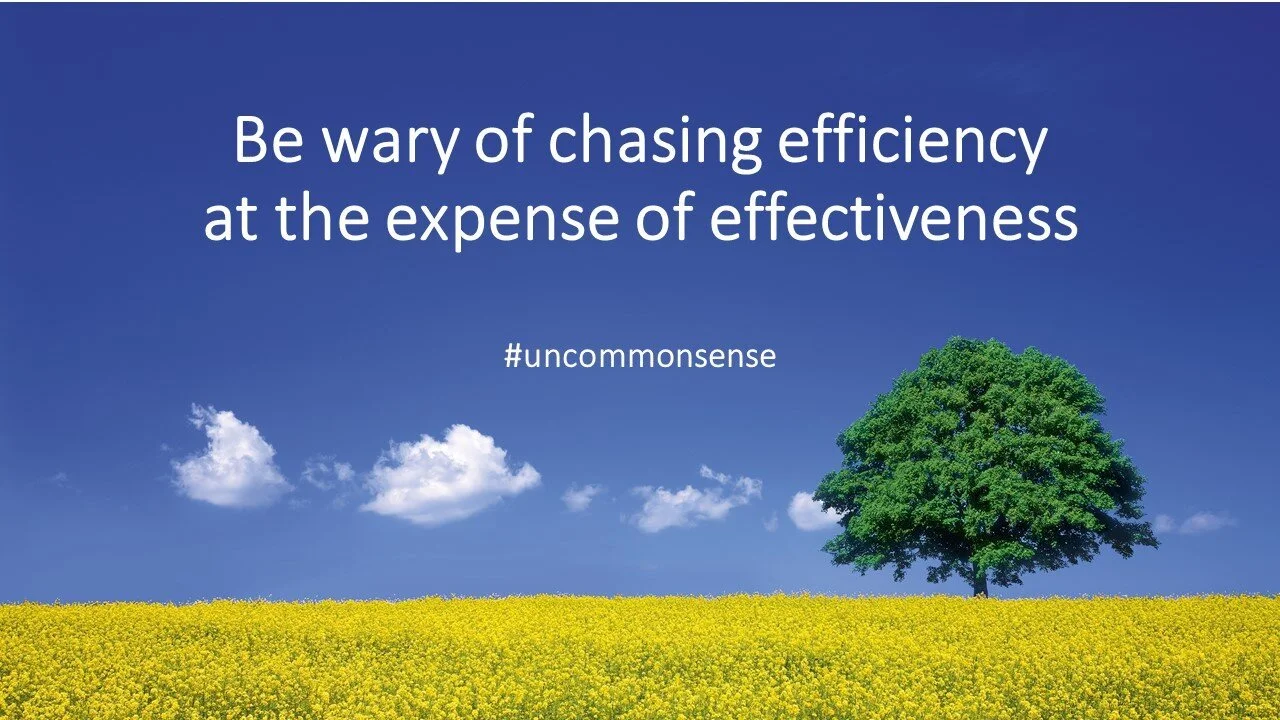Be wary of chasing efficiency at the expense of effectiveness
“Half the money I spend on advertising is wasted;
the problem is I don’t know which half.”
Who first uttered those words is the subject of some debate, but what we do know is they said them a very long time ago – probably late 19th or very early 20th Century.
Maximising the return on advertising and promotional spend always has been, and always will be, front and central in the thoughts of businesses that rely on those tools to engage existing and prospective customers.
The advent of Digital Marketing made it so much easier to follow the chain from a digital ad placement through to the cash register. Understandably, this led businesses to believe they could save that half of their money that was being wasted, so the chase to reduce the cost per sale was on and with that came a focus on the short-term efficiency of advertising and promotional spend (how quickly the spend was recycled back in to the company’s coffers).
However, that can lead to an inexorable focus on the here and now with little thought to building lasting relationships.
Back in the world of 1990s advertising, before digital was a thing…, effectiveness was the big theme (creating long(er)-term customer relationships which result in long(er)-term sales and cash flows). I remember being sent on a week-long course to have this effectiveness point drilled into me. That week was built entirely around the concept of Discounted Future Cashflows, a concept fuelled by creating long-term revenue streams from engaged customer.
Now, of course, it’s not that one or other is the panacea for all, but there is a growing view that there’s been too much focus on short-term efficiency and not enough on longer-term effectiveness of advertising and promotional spend.
I must say I tend to agree. Sure, some digital/online brands have built loyalty, but much of digital seems to be a stimulus: response model where every transaction involves a cost of acquisition.
I wonder what the two leading candidates as author of that famous quote (John Wannamaker, an America department store magnate who went on to become Postmaster General of the US, and Lord Leverhulme, the man who created Unilever and so is probably responsible for most of the cooking and cleaning products in your home) would make of it all? Might they still think that half the today’s budgets might still be better spent?

